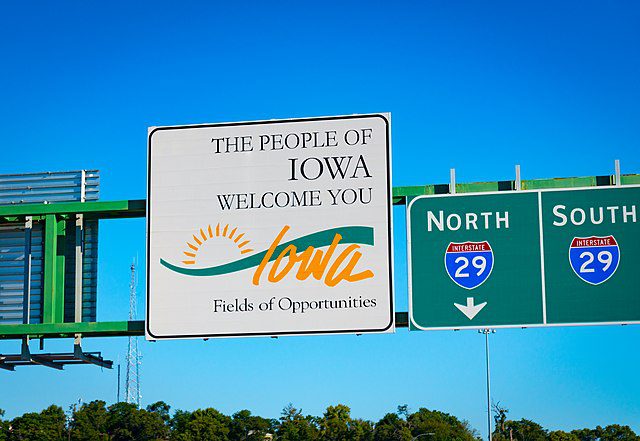Wasting no time, Cedar Rapids developers host groundbreaking, announce late 2026 opening

One day after receiving approval from state regulators, developers of a Cedar Rapids casino hosted a groundbreaking ceremony and laid out a construction timeline.
On Friday (7 February), developers Peninsula Pacific Entertainment (P2E) and the Linn County Gaming Association (LCGA) hosted a groundbreaking ceremony on the site of P2E’s just-approved casino in Cedar Rapids.
The $275 million (£221.6 million/€266.2 million) Cedar Crossing Casino and Entertainment Center will open New Year’s Eve 2026, stakeholders announced. The venue is expected to feature 700 slots, 22 tables, a 1,500-capacity venue and a STEM lab for children. Construction will begin Monday (10 February). Eight percent of net adjusted gross revenue will go to local non-profits, more than twice the state minimum.
Among the attendees Friday were P2E chair Brent Stevens, LCGA president Anne Parmley and Cedar Rapids mayor Tiffany O’Donnell. All three have advocated for the project for more than a decade.
“We’ve been here in the great state of Iowa for over 25 years, building three world-class facilities in Dubuque, Northwood and Sioux City, and here we are in Cedar Rapids,” Stevens said, per the Corridor Business Journal. “This is going to be the best one yet. More amenities, more places to become a part of this community, more places to be entertained. And we promise to make you very, very proud with this development.”
Licence approved on third attempt
The ceremony took place just 24 hours after the Iowa Racing and Gaming Commission (IRGC) approved the licence. The vote was 4-1 in favour, with commissioner Alan Ostergren the lone dissenter. According to the Iowa Capital Dispatch, Ostergren, an attorney, cited previous legal challenges to the project as his reason for opposition.
Thursday’s approval was the third time the IRGC has considered a Cedar Rapids proposal. Previous applications were denied due to fears of cannibalisation on existing facilities. With a population of 3.2 million, Iowa now has 20 commercial and four tribal casinos.
This time around, cannibalisation was again a key issue. Two market studies from Marquette Advisors and the Innovation Group said that Cedar Crossing would add approximately $60 million in new gaming revenue and $10.5 million of additional tax revenue for the state. They also warned that a large portion of the casino’s revenue would be siphoned from existing licencees.
For years, state casinos have been extremely vocal in their opposition for that reason, to no avail. Perhaps the biggest opponent was Riverside Casino & Golf Resort, which is projected to lose the most revenue. Riverside Casino & Golf Resort is about 40 miles from the Cedar Crossing site. The Riverboat Foundation, which holds the casino’s licence, has called Cedar Rapids “a big bully” throughout the process.
In a statement after the ruling, O’Donnell said, “Iowa’s second-largest city has finally been given the opportunity that our residents, business leaders, nonprofits and surrounding communities have sought for years. Cedar Crossing will create new revenue for the state and bring new visitors every year – a solid win for every Iowan.”
Fast-moving moratorium loomed large
Aside from the IRGC approval, P2E and the LCGA also had to sweat out a five-year moratorium on state gaming licences. Introduced by representative Bobby Kauffman, House File 144 would’ve retroactively banned new gaming licences through the rest of the decade. Additional language would have also added new requirements for licencing that effectively blocked any future Cedar Rapids applications.
Lawmakers had previously enacted a two-year moratorium that expired last July. Kauffman raced to introduce a moratorium in the last days of last year’s session, but it stalled in the senate. It was well known throughout the summer that another moratorium proposal was coming. This year, HF 144 was fast-tracked through the house and appeared to be gaining momentum. But that momentum suddenly stalled out 3 February.
Senator Ken Rozenboom, who chairs the senate state government committee, announced he was pulling the bill due to a lack of support from senate Republicans. “In the interest of moving this session forward to other issues of critical importance to Iowans, I have no plans to reconsider the legislation for the remainder of this session,” he said, per the Gazette.
The sudden death of the bill created a runway for Cedar Crossing, and state regulators made the dream a reality.


